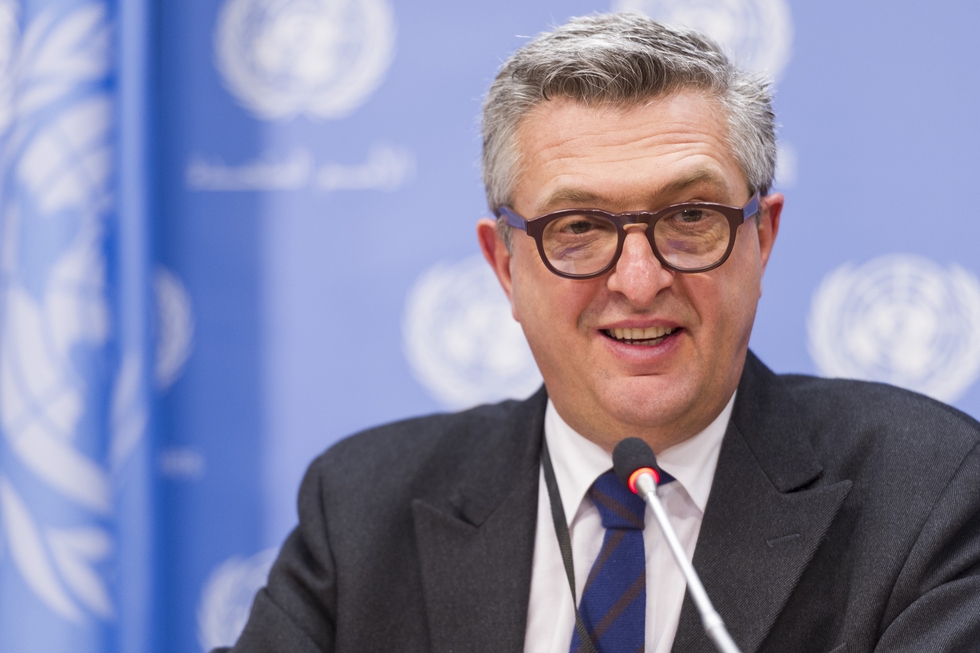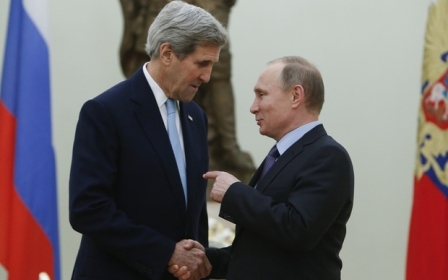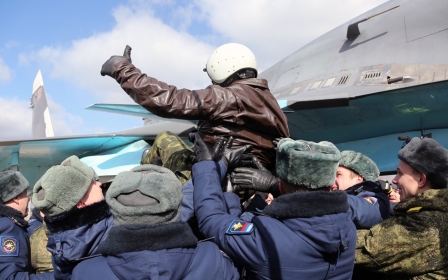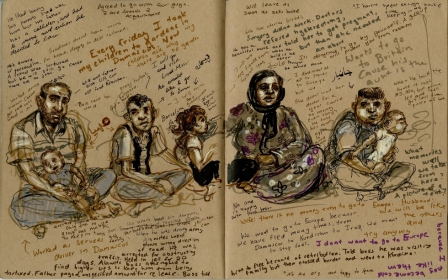UNHCR chief asks world to take in 400,000 more Syrian refugees

By Dave Clark
The United Nations High Commissioner for Refugees asked on Tuesday for countries to step forward and take in another 400,000 Syrian refugees.
On his first visit to Washington since being appointed to head the UN refugee effort, Filippo Grandi said the world must do more to end the crisis.
"On 30 March, I'm going to chair a meeting in Geneva at which I ask the international community to take 10 percent of all the Syrian refugees," he said.
"Ten percent is a lot of people. It's more than 400,000 people," he told reporters, on the fifth anniversary of Syria's bloody civil war.
More than four million Syrians have fled their war-torn country since the conflict erupted, and more than six million are displaced within its borders.
Neighbouring Turkey, Lebanon and Jordan struggle to cope with the exodus and the onward flow has created a political and humanitarian crisis in Europe.
Canada and Germany have been praised for stepping up to welcome tens of thousands as refugees, but others, including the United States, have been criticised.
Historically the US has been the world's leading host of refugees, and it still is for those fleeing many other conflicts around the world.
But, amid a bitter atmosphere and heightened Islamophobia in the run up to November's presidential election, Washington has largely failed to offer new homes to desperate Syrians.
'Political failure'
US President Barack Obama ordered 10,000 Syrian refugees be admitted during the 2016 fiscal year, but half-way through the period only 1,115 have been processed.
Grandi was careful not to criticise his hosts in Washington, praising the leading US role in hosting refugees of other nationalities.
But he lamented the tone of the debate in both the US and Europe, where anti-immigration politicians have claimed that militants hide among Muslim refugees.
Grandi complained that on a visit to the European parliament he had heard "language we haven't heard since the 30s" from opponents of resettlement.
But he added that rather than providing Syrian refugees with new lives and permanent residence, some countries may offer temporary jobs, scholarships or humanitarian visas.
For this, he said, his office would work with private firms and universities in partnership with states, to try to reduce the pressure on Syria's neighbours.
That, he argued, is the least the world can expect - at least until a lasting peace is negotiated in Syria.
"We're really observing one of the worst political failures in modern history," Grandi complained.
"The failure of the parties to the conflict. The failure of the regional powers. The failure of the global powers to get them to come to an agreement.
"In the absence of that - and we have to be hopeful - it is important to show solidarity in every possible way," he said.
Stay informed with MEE's newsletters
Sign up to get the latest alerts, insights and analysis, starting with Turkey Unpacked
Middle East Eye delivers independent and unrivalled coverage and analysis of the Middle East, North Africa and beyond. To learn more about republishing this content and the associated fees, please fill out this form. More about MEE can be found here.




